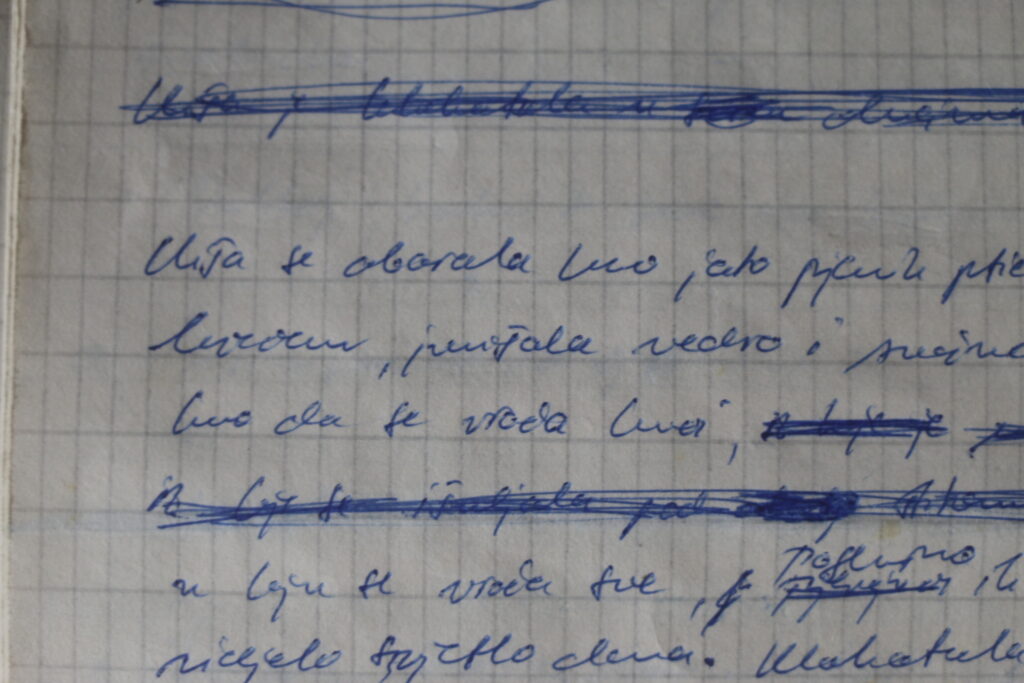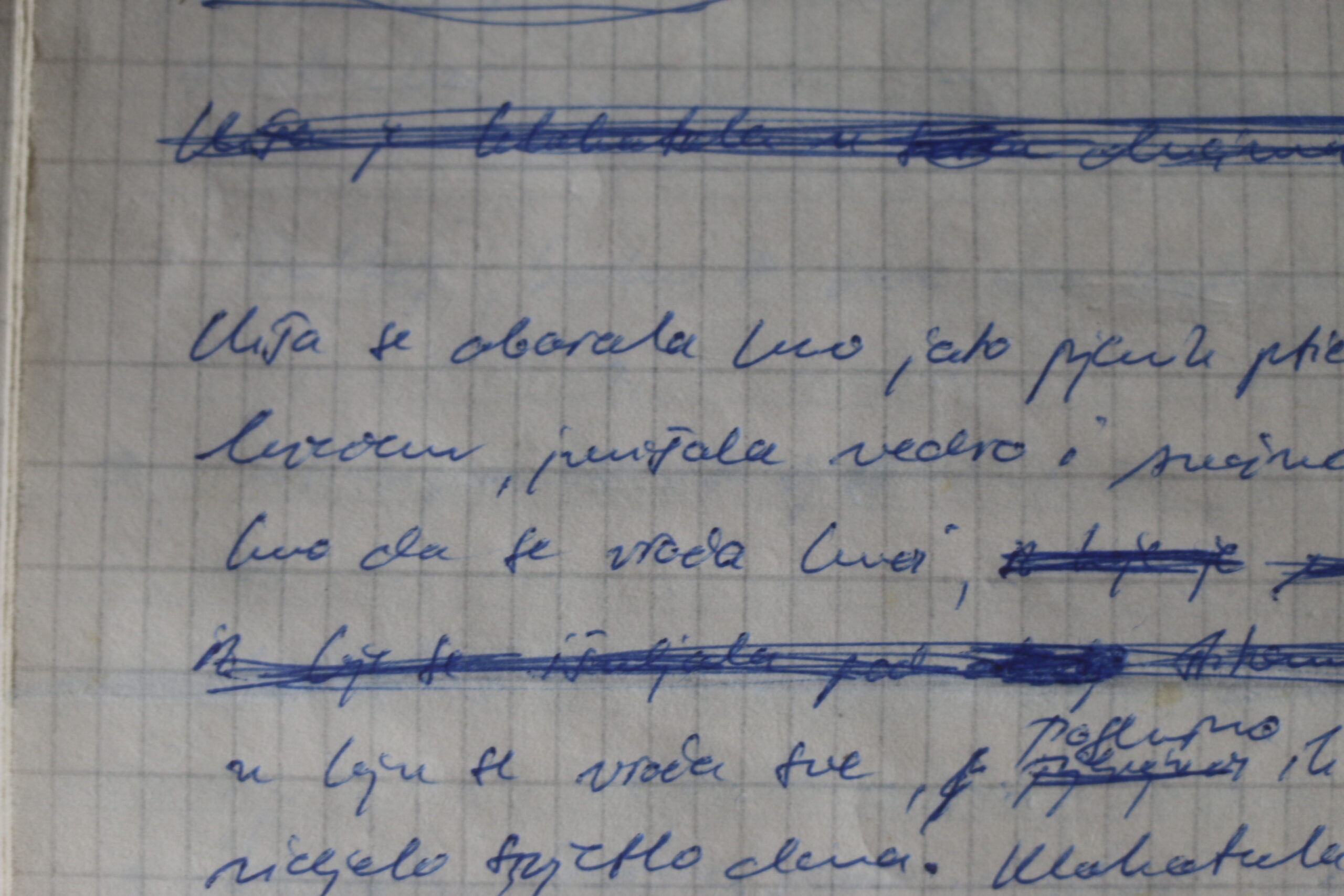
The rain falls patiently. It descends like a flock of drunken birds, charges boldly and forcefully, returns home, to the earth, deep below, to flood, to smother, to fertilize. It gurgles in gutters, drains, cracks, breaks into cavities, grooves, holes, hollows, conquers cobblestones, streets, sidewalks, flows into trenches and pipes, into ears and throats, pours into places where there is no light, into corners where blind creatures breed, into nests of vermin, spiders and mice. It washes everything out, into the open, cleanses, baptizes, gives a chance, new life. I want to stick out my face to get wet, for it to strike me across the cheeks, the lips, my eyes would be open, the rain would replace tears, it would look as if I were crying for something, for happiness. But the rain falls without choice, it does not care where or over whom it runs.
Beneath a ragged tree a student with a heavy suitcase waits for a taxi. He tries to light a cigarette. From the suitcase comes the smell of homemade food. He was ashamed of it on the bus. When he reaches his room, he will be glad. A tram comes loudly, recklessly, past him. A young man in the tram looks at the young man under the tree. He coughs as he inhales, because he has only just begun to smoke. Beside him is a heavy suitcase. The young man in the tram thinks how heavy a just-packed suitcase must be. A divorced taxi driver sits in a running car. His eyes follow the wipers. He turned away the young man with the suitcase, not knowing himself why. The radio crackles. He hears every fifth word of the broadcast. His eyes follow the wipers like the hands of a hypnotist.
The rain is born into a thousand fragments. It flows deeper and deeper, into stone, into rock, into clay, into loam, into gravel, into bone. It runs down buried bones, joint by joint, bone by bone. Bone whiteness molds. Fresh flesh rots away, vanishes. The rain seeps deeper still, into the earth, into buried ruins, into shattered youths, into scattered dreams, voices silenced and wiped away. Through the wet window the young man absorbs the gravestones. The earth is the same here and there. A monster hungry for people. The tram leaves the graveyard behind. Headstones and crosses soak in vain, sinking mutely into the soil, greened and crooked. They will never sprout leaves.
Perhaps miracles are possible — to rise and leave. To sit somewhere on a plain, where there are no hills blocking the view, in a meadow where bees buzz and tall grass sways in the wind. To lie in the green and look at the sky, unbound, unrestrained, endless.

